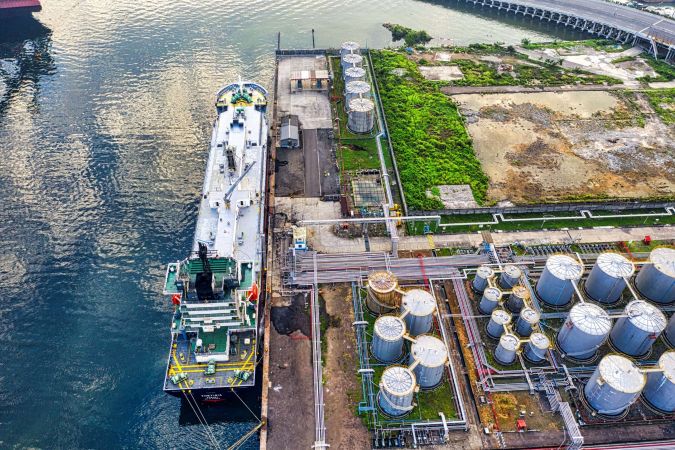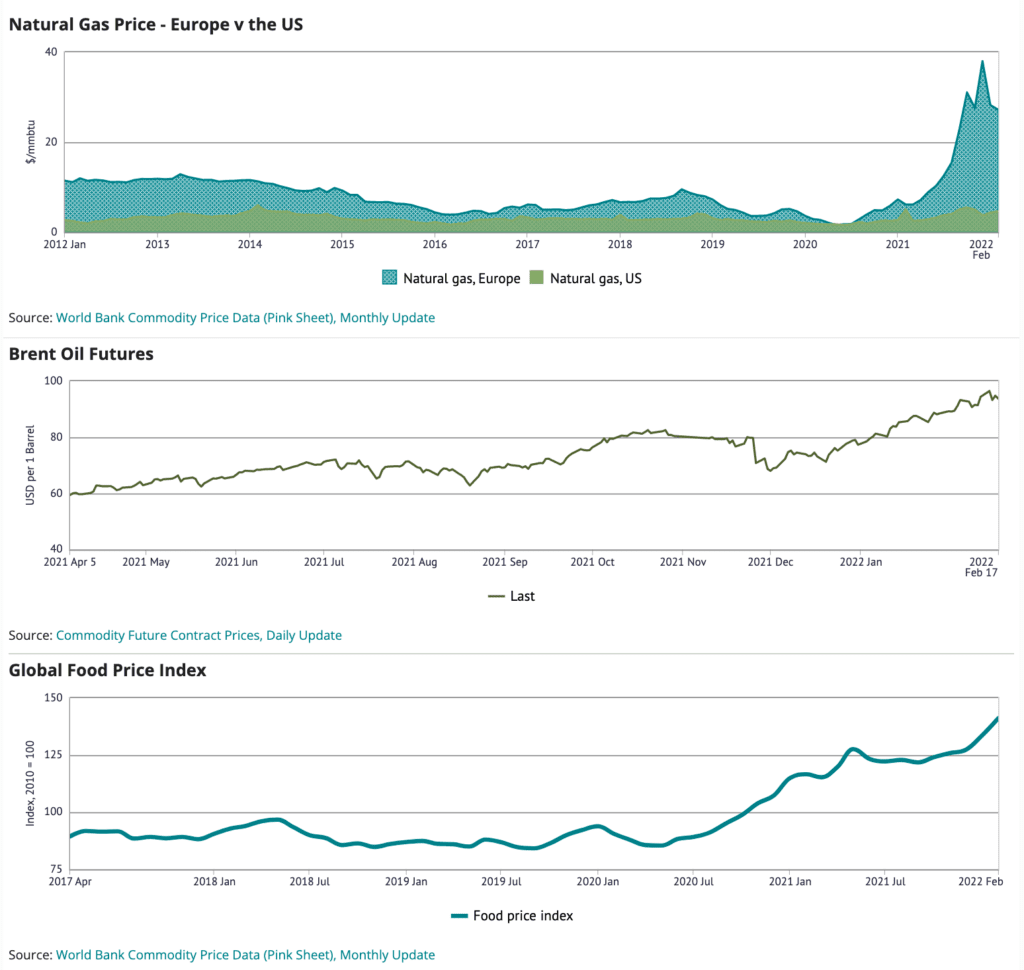OUR DATA PORTAL Emergent RiskIQ Login
What Happens if Europe Actually Sanctions Russian Gas?

Germany/EU/ Russia: German Defense Minister Christine Lambrecht said that Europe needed to consider banning gas imports from Russia following graphic evidence of atrocities committed by Russian forces in Ukraine.
Why it Matters: Sanctioning Russian gas supplies would disrupt European manufacturing capacity as well as driving even higher inflation that could last months – if not years. The economic impact would further set back European economic recovery from COVID-19, with ripple effects to other economies in the US, Middle East and Africa. Last week, as talks broke down over European payments to Russia being provided in Rubles, several European countries, including Germany indicated that citizens may need to prepare for gas rationing. While an immediate halt to supply was averted by Russia saying they didn’t expect Rubles for April deliveries, a larger problem surfaced as video and pictures from the Ukrainian town of Bucha – a Kyiv suburb – began to emerge. It was in response to the pictures and reports of non-combatants being executed and left on the street or dumped in shallow mass graves that gave rise to the Defense Minister’s tweet this weekend which implied that continuing to pay for Russian gas supplies was not sustainable under the circumstances.
Europe gets 40% of its gas from Russia. Manufacturing heavy economies like Germany’s are particularly dependent and have been reluctant to entertain sanctioning gas supplies up to this point. However, as the war in Ukraine drags on, options for continuing to work with Russia amid the conflict are dwindling. Gross human rights violations are weighing particularly heavily on Europe as citizens agitate for Europe and the US to take more action. On March 30, Germany’s Economy Minister announced a three-tiered rationing system that would also give citizens and hospitals priority energy access – above that of the country’s industrial and manufacturing firms. Unions associated with Germany’s large chemical manufacturers indicated that such a scenario could leave as many as 40,000 workers laid off or on reduced work schedules, while having a domino effect across industries reliant on the chemical sector including pharma, automotive, and construction firms.
In the immediate term, Europe has built up a supply of LNG from the US and diverted from sales to places like Japan as it’s contended with Russia’s on again off again supply over the winter months. Germany meanwhile says its gas stores are only about 25% full. This will last through the summer months, where not as much gas will be required. But long term – and especially in the winter – structural and economic problems could severely limit the ability of countries like Germany to import enough gas to keep homes heated through the winter months. While pipelines emanating from Russia across to Europe are ubiquitous, Eastern Europe and Germany do not have sufficient access to reverse flow pipelines that would allow gas imports across the continent from the west. In order to bring more supply into Germany and Eastern Europe from the US or from Africa, the continent would need to add infrastructure – projects that could take several years at least – even on accelerated timelines.

What to Watch For: Meetings and announcements in the coming week could be more decisive and clear on how Europe intends to address the Russian gas problem – and whether they will indeed sanction it. The EU and US have vowed more unspecified sanctions in the wake of the killings in Bucha. In addition to the German Defense Minister’s comments, the Italian Foreign Minister also indicated that hydrocarbons sanctions could be on the table. Meanwhile, several of Gazprom’s European subsidies could be nationalized as early as this week including its UK Trading and Marketing arm. This is mainly due to a liquidity crisis now facing the company as banks and buyers increasingly refuse to deal with the firm. Nationalizations would allow the firms to supply previously bought hedged energy cargos to clients – keeping those clients from having to buy at high current spot rates – but it would not solve the overall dilemma of Russian gas supply to the EU.
Sign up for our Newsletter
ERI has offices in the United States, Singapore, the United Kingdom and Ireland. Want to know more?
